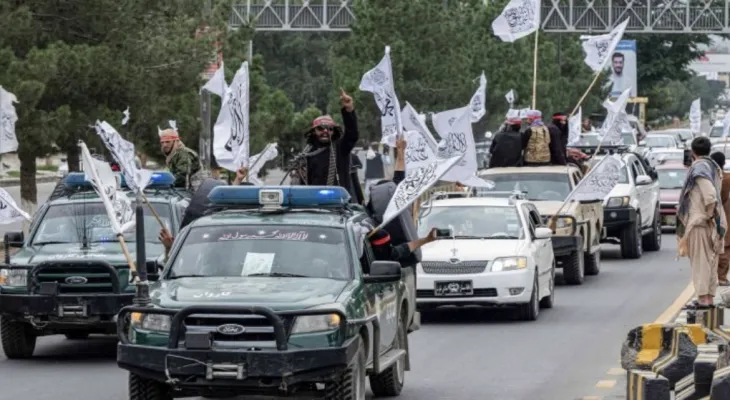Search here
Newspaper
Search here

Arab Canada News
News

Published: August 15, 2022
Researcher at the Sofan Group in New York, Colin P. Clark, said that Afghanistan, after a year of Taliban control, seems like a dangerous place. The Taliban is the de facto government and punishes and strikes Afghans who violate the teachings of the extremist group. Alongside social and economic collapse, Afghanistan may have once again become a safe haven for international terrorism and extremist violence organizations.
Clark said in his article published by the “Los Angeles Times” that the situation in Afghanistan will worsen before it improves, with the Taliban coming to power last summer and Al-Qaeda getting a new lease on life. Afghanistan has not yet turned into a failed state from which groups like Al-Qaeda and the Islamic State can launch attacks against the West, but senior defense and intelligence officials are concerned about the ability of jihadist groups inside the country to develop their defensive capabilities over time.
Any terrorist organization needs two years to recruit, train, and deploy militants to carry out terrorist attacks, according to an assessment by Joint Chiefs of Staff Chairman Mike Milley and several other officials. Before his death in a U.S. raid, Al-Qaeda leader Ayman al-Zawahiri enjoyed freedom of movement in Afghanistan, according to the United Nations Monitoring Team report issued in the spring. As a result, al-Zawahiri released several videos, and his “feeling of comfort and ability to communicate” coincided with the “consolidation of key Al-Qaeda allies’ power” within the Taliban’s actual administration. His comfort and ability to operate in Afghanistan was a reason for his killing, and his presence in the capital Kabul was a sign of the close relationship between Al-Qaeda and the Taliban — where the latter provided Al-Qaeda a place to operate from.
In June, a correspondent for the “Wall Street Journal” said that General Michael Kurilla, commander of Central Command in the Middle East, revealed that the United States obtained security information confirming that the terrorist group is building training camps inside Afghanistan. Clark added that rebuilding the capability to plan and execute attacks abroad takes time, as terrorists need to reshape logistics, identify safe houses, update communication networks, and transportation capabilities.
The main goal of groups like Al-Qaeda and the Islamic State remains planning and executing major attacks in European countries. It is impossible for a terrorist movement to repeat an attack on the scale of the 9/11 attacks. Jihadists are aware of the development of counter-terrorism capabilities in the West, so any attack carried out might be similar to those executed in Madrid in 2004 and London in 2005, which targeted transport systems. Such attacks usually result in many casualties. Other targets include Western embassies, such as those attacked in East Africa in 1998, or focusing on soft targets like hotels frequented by Westerners, as groups linked to Al-Qaeda did in Indonesia in 2003 and again in Islamabad, Pakistan in 2009.
The methods used by terrorists are more sophisticated than those used when Al-Qaeda was in Afghanistan. The Islamic State introduced a new concept, the “virtual planning model,” where terrorist activists in one country use encrypted technology to interact with activists in another country. Plotters and attackers mostly meet online. With Afghanistan becoming a permissive area for terrorist groups, they will have the space to meet, conspire, and plan attacks, and its members may try to encourage local groups in America and Europe to carry out terrorist attacks. Meanwhile, Taliban leaders have repeatedly tried to blame the United States for their government’s failure since last year. Taliban spokesperson Zabihullah Mujahid said that the United States is “the biggest obstacle” to the international recognition of the Afghan government. The Taliban government contacted 30 countries in more than 350 meetings, but none of these countries recognized it.
Perhaps Zabihullah and the Taliban leaders should look at the broader picture in Afghanistan, where life has become harder since they came to power, with boys and girls deprived of their rights, the economy collapsed, alongside the COVID-19 pandemic and the June earthquake that killed 1,100 Afghans, displaced countless numbers, and worsened misery and suffering. The painful image of Afghanistan after a year of U.S. withdrawal is heartbreaking. As evident from the drone that killed al-Zawahiri, the United States is fully committed to its duty to prevent Afghanistan from becoming a haven for terrorism.
Although the operation is an example of successful overseas counter-terrorism and drone deployment, it is a single operation; the United States lacks “eyes and ears” on the ground. At the Aspen Forum, Biden’s national security advisor Jake Sullivan said the president does not regret withdrawing combat troops from Afghanistan, but his decision will be scrutinized if a major attack against the West is launched from Afghanistan, increasing pressure for America to deploy its forces back to South Asia.
Comments